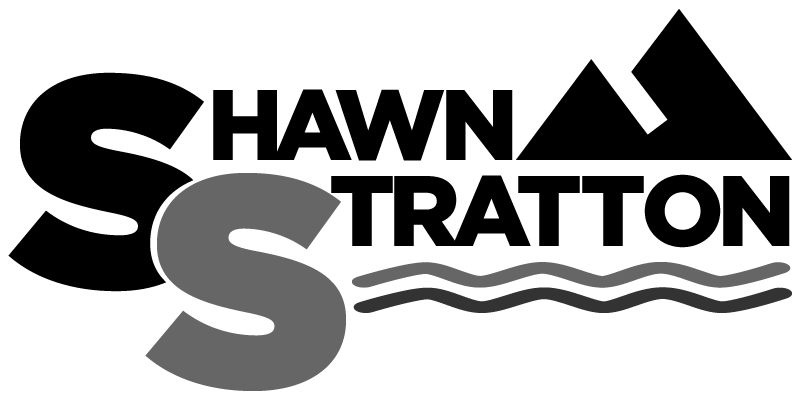
by Shawn Stratton | Nov 4, 2016 | Blog Posts
Surprise Constructive Feedback – You may not believe it but it is important! You know the kind of feedback, the type that comes totally unexpected and catches you off guard. It usually sends you in a tailspin of emotions. Once I received surprise written feedback from a client, saying that at times I spoke to them in a condescending voice. My first reaction was to say, “No I didn’t, and you don’t know what you’re talking about”. My second reaction was “I am not that fond of the person anyway so their opinion doesn’t mean much to me”. My third, and most reasonable, reaction was “That’s horrible, I feel so bad. Was I really condescending? If so why and what can I do to alter my behaviour?” For my brain to run through these reactions took about 5 minutes, without talking to anyone. At times, you may receive personal constructive feedback that you are surprised to hear. You may believe it to be true or not but the fact of the matter is that it has been said to you and now you need to react. What do you do with this sort of feedback? A common initial reaction is to blow it off as just a “one-off” and deny that it could even be true or on the other hand, express extreme concern that your behaviour has a negative effect on someone. Thoughts such as “It doesn’t really matter, it’s only one or two people who feel this way” are also common. Sure, at the end of the day, feedback is just one person’s opinion, it’s not who...

by Shawn Stratton | Oct 21, 2016 | Blog Posts
I will never forget the time a client on a month long mountaineering expedition I was leading looked at me on the first day and said, “Aren’t you a little young to be leading us?” A little caught off guard, I replied, “How old should I be?” He was clearly skeptical of my experience and leadership abilities on that first day. Four days later, after I set up his rappel system on a knife-edge ridge in the North Cascade Mountains of Washington State, he was pretty happy I was there to show him what to do as he was shaking in his boots. Once we got into the mountains I could have used my position as his instructor to gain influence over him but I decided to let my expertise speak for itself. Gaining Influence I am often asked “how can I influence others when my position offers me little formal leadership”. My quick answer is “The same way as if you had a formal title”. As a leader, you hold a certain amount of influence over a group of people. There are 5 main types of influencers or “power” as Tom Kendrick highlights in his book Results Without Authority. Power Of Position Power To Coerce Power To Reward Power Of Expertise Power Of Personality Influencing others through your position and coercion come with a position of formal authority but are the least preferred methods of any quality leader. Too often, people feel they need to lead from a position with a fancy title. They say things like ‘if I was in XYZ position it would be so much...

by Shawn Stratton | Sep 30, 2016 | Blog Posts
Hi folks, I am back after my extended summer break of blogging. I hope you enjoyed the “best of” blogs that I posted during the summer and are eager for more valuable leadership and team building (and a few parenting) insights and information. Many new people have joined my blogging community in the past few weeks and I would like to send a big WELCOME to you. Others have been reading my posts for years and I greatly appreciate your interest in my work and the valuable time you invest in reading the blog. I promise to give you the best I have in concise, value packed information and stories to help you develop your leadership at work and home. If you ever have questions or suggestions on my blog topics, speaking assignments or leadership consulting, please don’t hesitate to get in touch with me at sstratton@livemoregroup.com. Now, on with the show… My editors often find it challenging to edit my PowerPoint presentations, not because of the spelling or grammar alterations needed but because of the lack of information. By their nature, slide decks a meant to support the dialog of the presenter, not to be the full text on the point being covered. When the editor is faced with rewording a point, their suggested revision it is often not what I am trying to convey. They don’t have the full context of the topic, story or point I am making which will come verbally when the slide is displayed, so they have to guess at the context and come up with a suggested edit. As a leader, you...

by Shawn Stratton | Aug 11, 2016 | Blog Posts
(Note – this is a 2016 summer addition ‘best of the best’ blog from the past.) The other day, I was getting some banana chocolate (see recipe below), for my kids 2 & 4 y/o. It was a treat. We just got home from a cold evening of soccer games and I thought I would give them a little treat to warm up before going to bed. Giving them the treat I also thought they may be a little better behaved for me going to bed instead of putting up with their usual antics. Soccer goes a little late and always puts me into rush mode to get them to bed at a close to reasonable time, which never happens. They were excited for the hot chocolate and the fact they could drink it out of the big kids’ cup, not the usual sippy cups. As I passed the cup to Trinity (the 2 y/o) I looked her in the eye and said “now be careful not to drop it”. Being 2, she is pretty good at dropping cups with liquid in it. I walked back in the kitchen to pour my own hot chocolate and not 5 seconds later I hear the cup hit the floor followed by uh oh. Rushing back to the table, I see her cup on the floor with the hot chocolate sprayed across the floor, on three chairs and halfway up two walls. I don’t even know how it got that far up the wall. For that moment and for the next 10 minutes while I cleaned, my world had caved in on me....
by Shawn Stratton | Aug 4, 2016 | Blog Posts
By Shawn Stratton | Follow him on Twitter (Note – this is a 2016 summer addition ‘best of the best’ blog from the past.) You’ve heard the expressions “I’m so busy,” “I’m too busy to do that,” or “I just can’t find the time …” I believe that these phrases have caused an epidemic of excuses in our society. It has become a sign of prestige to say how busy you are when someone asks, “How are things?” When was the last time you answered that question with “Things are pretty slow right now” or “Fantastic, I’m spending my time on things most important to me”? The reality is you are never too busy to do anything. You spend our time on what seems to be the most important thing to you right now. Think about the last time you told someone you were too busy to do something. I’m willing to bet you weren’t too busy at all; you just placed a lower priority on the task you were talking about than the one that was filling your time. An honest response would have been, “I’m sorry but that isn’t a high priority for me right now and I have other tasks that are more important to me taking up my time.” That brings us to the priority list. A priority list allows you to rank the importance of the tasks, which fill your time. I love writing these lists (and thinking about them even more) and ranking them so that I always know what I should be doing with my time. You are what you did today. (Tweet...
by Shawn Stratton | Jul 28, 2016 | Blog Posts
(Note – this is a 2016 summer addition ‘best of the best’ blog from the past.) Clearing out the clutter in your head starts with cleaning up your office. Look around your office are there any empty dishes, paper to be sorted, 10 old posted notes, files on the floor because your desk space is already full? How can you expect to think clearly if your work space isn’t clear? There are actual health and psychological benefits of a clean, uncluttered desk and there is even a name for it: Irritable Desk Syndrome As stated on the SixWise.com website “IDS is caused by working long hours at a cluttered desk, often with poor posture. The combination can lead to both physical and mental symptoms, including chronic pain, and loss of productivity.” I would encourage you to take 10 minutes before each working day to do a little tidy up; you will feel much better and may even be more productive. Until next week… Embrace the Adventure Shawn Shawn Stratton is an international leadership and team building consultant, professional speaker, bestselling author and Ironman competitor. Click here to learn more about how Shawn can help your organization. © 2016 Shawn Stratton. All rights...

by Shawn Stratton | Jul 21, 2016 | Blog Posts
(Note – this is a 2016 summer addition ‘best of the best’ blog from the past.) A few years ago Google set up a research team to find out the elements that create high performing teams. What they found and the length of time it took to find it surprised them. For several years they studied over 150 teams working within Google. Many of the senior executives in the company believed that the best teams developed when the best people were put together on a project. After gathering an enormous amount of data, the researcher found it was almost impossible to find meaningful patterns. In an article recently published in the New York Times’ Google’s lead researcher on the project Abeer Dubey stated, ‘‘At Google, we are good at finding patterns. But there weren’t strong patterns here.’’ The people comprising the team didn’t seem to matter. This finding didn’t surprise me. Leading wilderness expeditions for years with new teams, people would often ask me “what do you do if you get a bad team and you are stuck with them for a month in the mountains”. Strangely enough, that was never a concern of mine. As I gained experience leading, I came to realize that leaders play a more significant role in creating effective teams than the people who make up the team. Frustrated with the lack of patterns in the data they collected, the researchers delved further into reviewing past academic studies on how teams work. In the literature, they discovered that psychological and sociological research kept using the term “group norms” when describing successful groups. Norms are...

by Shawn Stratton | Jul 14, 2016 | Blog Posts
(Note – this is a 2016 summer addition ‘best of the best’ blog from the past.) As a leader, you are doing things with groups of people, meetings, meals, events, travel, etc. The one thing these all have in common is that you are all gathering at a specific time and place. As the saying goes, ‘time is money’, but time is more than money. Time is freedom. The more discretionary time you have, the freer you are. In our overscheduled world, time is the most precious resource you have. Is this someone you meet with regularly that is consistently late? What does this say about their respect level for you? Don’t be last…. Every time. I first heard this expression many years ago when I did a short stint of tree planting in Northern Ontario while in University and I have used it ever since. Anytime you have a gathering of people, there has to be someone who shows up last (I guess you could have a tie). In my tree-planting example, time really was money and freedom. If you were late to get on the bus in the morning, you cut into the team’s working hours and a chance to make more money. In the evening, if you were late to the bus, you cut into people’s coveted free time back at camp. One of the best ways to lose respect from a team is to be consistently late to show up to gatherings. Showing up last or late once or twice is excusable in most circumstances, especially if you were able to give notice ahead of...

by Shawn Stratton | Jul 7, 2016 | Blog Posts
(Note – this is a 2016 summer addition ‘best of the best’ blog from the past.) In 1965, psychologist Bruce Tuckman developed his now popular theory on the stages of group development. The original phases were Forming, Storming, Norming, and Performing. Around 1975, he added another stage to the theory, the final stage which he called Adjourning. You can find Tuckman’s original article “Developmental Sequence in Small Groups.” here and a nice summary of the stages on the businessballs.com site here. This article addresses what I believe is the most challenging stage: Storming. The storming phase comes second in the stages after the initial Norming phase. In Storming, team members have gotten to know each other adequately and have established some baseline norms for the group. They are no longer trying to just “fit in” they are now trying to establish them selves within the group by expressing opinions and challenging others opinions. Members are now confortable to express dissatisfaction and push the edges of the team standards laid out in the norming phase. Storming may even be directed to the team leader when individual roles have not been clarified or developed into what they expected. Growing Pains I remember as a teenager just about every ache and pain I had, that was not directly from a bruise from my chosen sport of the day, was attributed to “growing pains”. The Storming stage is the growing pain phase of group development. No one likes it but it is essential part of growth. Unlike the teenage growing pains, there is no ibuprofen (what we call ‘I Be Broken’ on expeditions)...

by Shawn Stratton | Jun 30, 2016 | Blog Posts
I know most of you read my weekly posts to gain valuable leadership insights but there are also those who check it out to see what its going on in Shawn’s world. This post is a short update on the big move my family is about to embark on and what you can expect from the blog over the summer. Several years ago, when living with a Maasai tribe in Serengeti in Kenya, a Kenyan friend mentioned to me that these people could move from their huts with everything they need and all their worldly possessions on the back of one mule. Wow, I thought, partly in jealousy and partly in sadness. I have been thinking of my Maasai friends this week as I attempt to pack up my house. Moving to Oxford, England, For One Year Moving a young family of 4 overseas, to another continent, is no easy task for anyone. To make matters more challenging for us is that we don’t know where we will be heading after we leave England in a year. As daunting as the task of dealing with all our stuff is, I am starting to realize the hardest element of a move is the mental strain it places on you. The biggest challenge is that we are trying to only move our family with what we can take on the plane. When you live in a 4-bedroom house with kids and a home office, it means there are a lot of decisions to make about your stuff. The good thing is that it’s all only STUFF. One thing I have learned...















